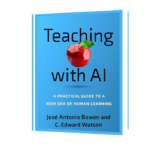Embarking on the journey of reading is a significant step in the life of a student. As you stand at the threshold of the vast literary world, the question arises: which genre should you start with? The world of literature is expansive, diverse, and filled with countless genres, each offering a unique experience. This article aims to guide students in selecting the right genre to kickstart their reading journey, emphasizing the importance of personal interests, academic enrichment, and holistic development.
Understanding Personal Interests Is Important
The first and foremost consideration in choosing a genre is to identify your personal interests. Think about your hobbies, passions, and the topics that captivate your attention. Are you drawn to stories of adventure, mysteries that challenge your intellect, or perhaps tales of romance that touch the heart? Understanding your preferences is crucial in making reading an enjoyable and fulfilling experience.
For those who love exploring new worlds and experiencing thrilling escapades, the adventure genre might be an excellent starting point. Classic adventure novels like Jules Verne’s “Twenty Thousand Leagues Under the Sea” or modern works like Suzanne Collins’ “The Hunger Games” can transport readers to extraordinary realms, sparking their imagination.
If you have a penchant for solving puzzles and unraveling mysteries, the mystery genre might be the perfect fit. Authors like Agatha Christie and Arthur Conan Doyle have crafted timeless mysteries in works such as “Murder on the Orient Express” and “The Adventures of Sherlock Holmes,” providing readers with a mental challenge and a sense of satisfaction upon solving the puzzle.
For those who enjoy exploring the complexities of human relationships and emotions, the romance genre offers a plethora of options. Classic romances like Jane Austen’s “Pride and Prejudice” or contemporary works like Nicholas Sparks’ “The Notebook” provide a window into the intricacies of love and connection.
Academic Enrichment Matters For Students
While personal interests should guide your initial choices, it’s also essential to consider genres that can contribute to academic enrichment. Reading a diverse range of genres enhances your vocabulary, critical thinking skills, and cultural awareness. Students can explore classic literature, historical fiction, science fiction, or non-fiction to broaden their intellectual horizons.
Classic literature, such as William Shakespeare’s plays or Charles Dickens’ novels, provides insight into historical contexts, societal norms, and timeless themes that continue to resonate today. Engaging with these works not only strengthens your grasp of language but also fosters a deeper understanding of human nature and societal dynamics.
Historical fiction, on the other hand, combines the allure of storytelling with a backdrop of historical events. Novels like Ken Follett’s “The Pillars of the Earth” or Hilary Mantel’s “Wolf Hall” transport readers to different eras, offering a vivid portrayal of historical settings and characters.
Science fiction, a genre that explores speculative concepts often rooted in scientific principles, can stimulate your imagination and encourage contemplation of the future. Works like Isaac Asimov’s “Foundation” or Ursula K. Le Guin’s “The Left Hand of Darkness” challenge conventional thinking and open the door to imaginative exploration.
Non-fiction genres, including biographies, memoirs, and essays, provide a glimpse into real-life experiences and the thoughts of influential figures. Reading works like “The Diary of Anne Frank” or “The Autobiography of Malcolm X” fosters empathy, understanding, and a connection to the human experience.
Moreover, such books enhance students’ vocabulary, comprehension, and communication skills, laying a strong foundation for academic excellence. Exposure to diverse perspectives and information fosters a well-rounded education, helping students make connections between different disciplines and fostering a holistic understanding of the world.
Additionally, academic enrichment books stimulate creativity and curiosity, encouraging independent learning and a lifelong love for acquiring knowledge. They serve as a bridge between classroom learning and real-world applications, preparing students for the complexities they may face in their future careers.







